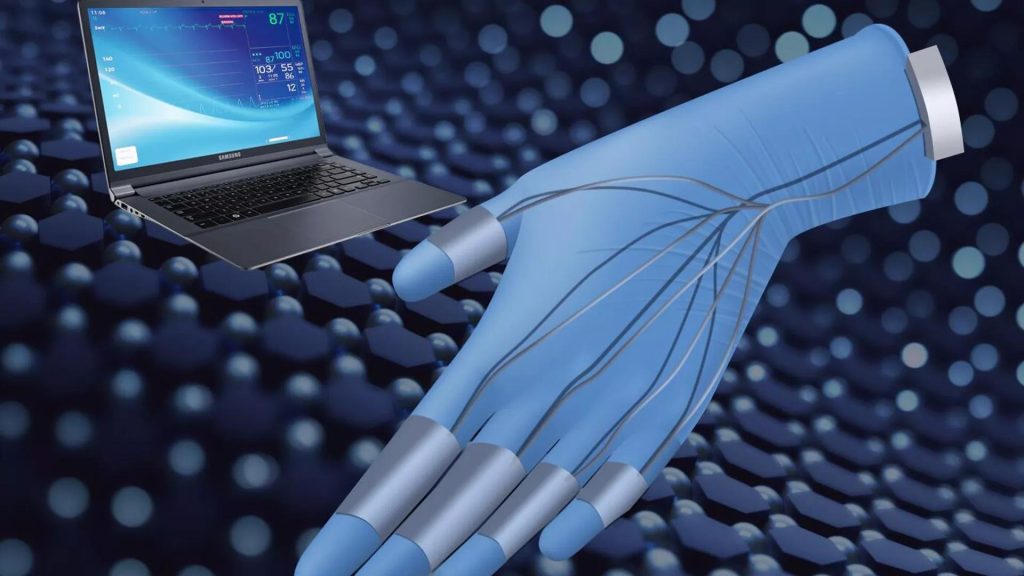Africa-Press – Lesotho. Researchers from the National Research University of Electronic Technology (MIET) and Sechenov First Moscow State Medical University have developed sensitive sensors made of biocompatible material that can be used to create “electronic skin” and potentially eliminate the need for invasive biopsy procedures, according to the authors.
Skin is the largest organ in the human body and is capable of perceiving and responding to complex environmental stimuli. Specialists have revealed that scientists around the world are working to create “electronic skin” that mimics the human sensory system.
According to researchers, electronic skin could be used to develop next-generation prosthetics, personalized medicine, soft robotics, artificial intelligence, and human-machine interfaces (such as displays, as well as photovoltaic and transistor technologies). It could also be applied to wearable monitoring systems, healthcare management, biomedical science, and regenerative medicine (e.g., to monitor the movement of various body parts, such as limbs, joints, chest, and muscle tissue deformation in postoperative therapy, etc.).
In developing electronic skin, specialists seek to accurately replicate the functions of the human sensory system, with the most sensitive mechanical receptors located on the tips of the human tongue and fingers, also known as tactile receptors. The sensitivity of these receptors ranges from 20 to 50 Pascal (Pa) of pressure.
According to the university, there are numerous pressure sensors for robotics worldwide with sensitivities up to 10 Pa. However, these sensors have low levels of biological compatibility and operating ranges that do not allow their use in medical contexts.
Scientists from the Institute of Biomedical Systems at the National Research University of Electronic Technology (MIET) and the Institute for Bionic Technologies and Engineering at Sechenov University have developed two groups of sensitive deformation sensors: tactile and stretchable sensors. Their research results have been published in the Micromachines journal.
According to the researchers, the developed sensors differ from known analogues in that they are created based on biological or biocompatible materials, and can easily be applied or removed. They enable high-precision registration of various deformation and surface shapes, such as stretching, bending, convexity, and concavity, thereby expanding their diagnostic capabilities.
He added that laser treatment significantly improves the mechanical and electrical properties of the film.
For tactile sensors, the researchers achieved sensitivities of 20-60 Pa and an intelligent gesture recognition system with an accuracy of around 94%, according to the specialists.
The authors stated that the sensors, when used in a new type of endoscope, will make it possible to avoid invasive biopsy procedures (removal of cells or tissues from the body for diagnostic purposes). This function will be performed by the tactile sensor in the form of a matrix consisting of numerous sensitive elements. The scientists are confident that such an instrument will be in great demand in the field of medicine, especially in oncology.
The research results are reflected in a number of scientific publications from 2022-2023 (Bioengineering, Nanomaterials, Physics and Mechanics of New Materials and Their Applications) and in Russian patents No. 2662066 and No. 2685570.
The research was conducted as part of the “Priority 2030” strategic academic leadership development program.
For More News And Analysis About Lesotho Follow Africa-Press






